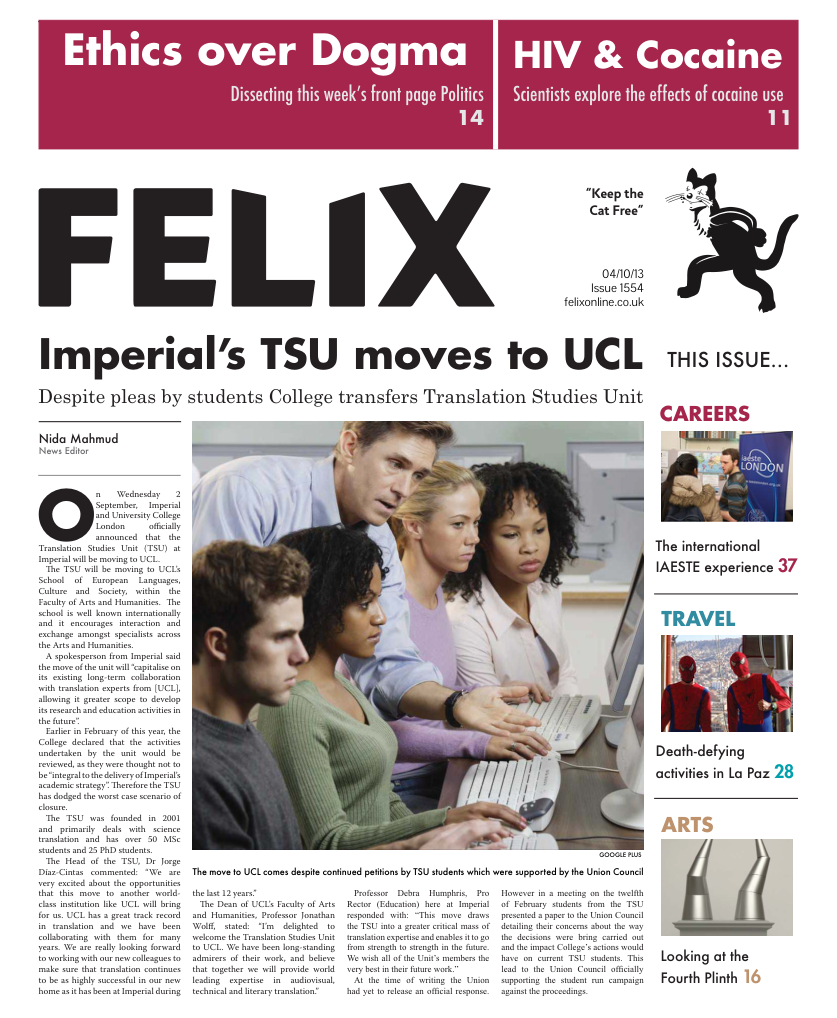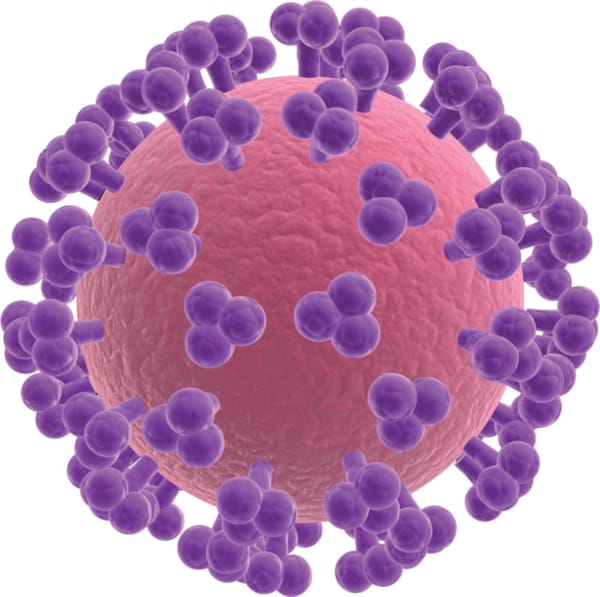Blood, snot and students
Fiona Hartley tells us why scientists will soon be adding a new weapon to our arsenal against flu
I’m sure several of you are suffering with freshers’ flu by now, as I am, because sharing your germs via sniffling and/or coughing on your unfortunate peers in lectures is akin to physical intimacy here at Imperial. You’d rather be healthy, or at least in bed, as you sip your Lemsip Max and wish that you hadn’t shuffled through crowds of virus-laden students in the QTR at Freshers’ Fair.
While Freshers’ flu is basically a bad cold that makes us feel a bit shit right when we want to be out on the town enjoying ourselves the annual flu epidemic is a much more serious affair. Influenza always poses a potentially serious risk to our health and that remains a fact despite sensationalised news reports claiming the latest pandemic will kill millions of people. (I do realise that I’m guilty of the same thing, referring to war in the title of this article – but how else do you make a future flu vaccine sound exciting? Please tell me…)
A vaccine that is effective against all strains of flu is described as the ‘Holy Grail’ for influenza researchers. Last week Imperial demonstrated its dedication to this goal when Professor Ajit Lalvani and his team published their conclusions from a two-year long study of the health of 342 staff and student volunteers in Nature Medicine.
The study began in the autumn of 2009 when the swine flu pandemic was starting. Previous models had suggested that T-cells, the little lymphocytes which are crucial in the cell-mediated immune response, could recognise core proteins within the influenza virus and perhaps confer some protection against symptoms of flu. The team used the pandemic to explore this theory. Once the volunteers had donated blood samples and nasal swabs, they were sent a health survey ever three weeks and asked to donate another nasal swab if they suffered from any symptoms of influenza.
The group found that the volunteers who suffered from milder symptoms of flu when infected had a greater number of CD8+ T-cells in their blood at the beginning of the study. Professor Lalvani called the findings a “blueprint” to guide future vaccine development. Their study contains precise information about the characteristics of the protective T-cells and this can be incorporated into the testing of novel influenza vaccines, as well as potentially leading to a vaccine that stimulates a T-cell response large enough to have the desired protective effect.
So your nasal secretions contain more value than you might first think. And while I’d prefer a greater number of volunteers to have been part of the study, I think it’s great that students were indirectly involved. Imagine being one of them, smug in the knowledge that the disgusting river which dribbled out of your nose four years ago influenced the advancement of science…
This is good news for the future of flu vaccination and our general health. It will be many long years before influenza is a thing of the past, however; I suppose it will be even longer before we see the back of freshers’ flu.









